Cathode Ray - Interview
by John Clarkson
published: 18 / 4 / 2015
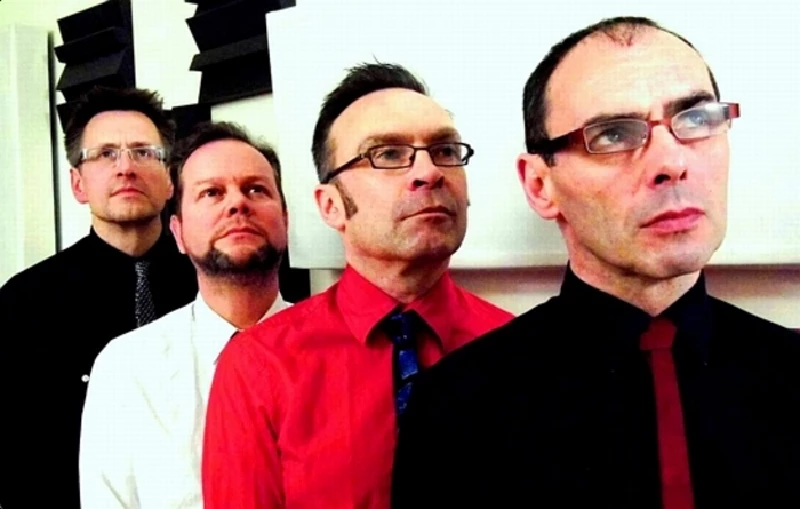
intro
John Clarkson chats to Jeremy Thoms, the front man with Edinburgh-based alternative rock act the Cathode Ray, about his band's versatile second album, 'Infinite Variety', and his rapidly expanding record label, Stereogram Recordings
It has been over three years since Pennyblackmusic first interviewed Jeremy Thoms. During that time a lot has changed for Thoms. When we spoke to him then, his band, the Cathode Ray, were about to self-release their eponymous debut album on his own label Stereogram Recordings. Now the Cathode Ray are about to return with a second album, the more colourful 'Infinite Variety'. Stereogram Recordings, which was originally conceived as simply being a prop for the Cathode Ray, has also gone through a remarkable rise and, currently the base for another six acts, has metamorphosed into becoming possibly Scotland’s finest and most exciting new independent label. Originally from Aberdeen, Thoms moved to Edinburgh in 1982. He was at one point the keyboardist in the Revillos, and was also the guitarist in much-acclaimed late 1980’s indie hopefuls Jesse Garon and the Desperados. He has played and sung as well in a wide variety of Edinburgh-based other groups including electronic/dance act Paparazzi; the 60’s-influenced Naturals, and alt.pop acts New Leaf and Skyline. The Cathode Ray was formed by Thoms with ex-Josef K frontman Paul Haig in 2006 with the aim of marrying the sounds of 70's New York acts such as the Velvet Underground and Television with those of 70's Mancurian outfits such as Joy Division, Magazine and the Fall. While Haig dropped out early on, leaving the band after two well-received singles, ‘What’s It All About?’/’Mind’ (Pronoia Records, 2006) and ‘Slipping Away’ (Re-Action Recordings, 2009), to focus on his solo career, Thoms kept that framework for 'The Cathode Ray', of which eight out its eleven songs were Thoms/Haig co-writes. The 70's new wave and post-punk influences of the first album are still very much in evidence on the new album. Yet 'Infinite Variety', as its title implies, has a much wider sound, merging these with influences that range from psychedelia to glam rock, shoegaze to Euro disco, and krautrock to 90's alternative pop. At one level it is the natural extension of the last record; at another its boundaries have been greatly magnified. "I wouldn’t say that 'The Cathode Ray' was rigid," says Jeremy Thoms, talking to Pennyblackmusic for this second interview in a bar in Edinburgh's West End. "We had a concept and deliberately kept things fairly narrow, but for this one, while we didn’t want to go for anything that different in terms of tunes, I wanted to go for more colour and more light and shade. If folk go, 'That sounds like Pink Floyd,' or notice the references in there to, say, the Small Faces, then that is great." Although Thoms wrote all eleven of the tracks on 'Infinite Variety', he acknowledges that much of this expansion in direction has come from the other three members of the Cathode Ray, who provided the arrangements for each song and who also brought their own influences to the album. Guitarist Steve Fraser, who replaced Haig, was in early 80’s Edinburgh post punk band the Scars, and also worked with the young Mike Scott before he formed the Waterboys in his earlier groups, Another Pretty Face and Funhouse. He currently also plays in Dirty Harry, a Blondie tribute band, and works as well as a full-time session musician. Bassist Neil Baldwin was in 80's chart act the Bluebells and post-punk group TV21, who once supported the Rolling Stones, Both he and drummer David Mack have also been in and out of various of Thoms' other bands during the last twenty years. "With 'Infinite Variety' I wanted us to follow our instincts a bit more and to bring in the music that that each of us in the band listened to," Thoms continues. "We have all got different influences, and someone might bring something in and say, 'This is a little different’, and I would say, ‘Let’s try it. By the time we have finished with it hopefully it will sound like us.’” This more kaleidoscopic sound is symbolised on 'Infinite Variety' by its sleeve. In contrast to 'The Cathode Ray' which featured a black-and-white photograph of an empty underground car park, it has on its front cover a photo of a vibrant explosion of orange flowers. On the inner and back panels of the cover, in a further turbulence of colour, there are photos of over another forty species of flowers and plants. “I didn’t like the idea of us being portrayed as just this post-punk band,” says Thoms. “I knew that, if we had another black and white sleeve, we would be conjuring up all these further images of industrialism. The picture on the sleeve of the first album was a great image, but it was very stark. I wanted this one to be much more colourful. I was thinking of something along the lines of the old Roxy Music and Cocteau Twins sleeves or which Peter Saville would do. Those are really great pieces of art in themselves.” "I bought a good camera," he adds. "I took most of them in the Botanic Garden in Edinburgh. I had the camera with me thoughout all last summer and whenever I went out, and any time I saw something that attracted my attention I would take a photograph. When I took the front cover image, I just knew that that was it immediately. I loved the idea that there was so much going on the album, and wanted to show that with the sleeve." ‘Infinite Variety’ is being billed by Jeremy Thoms and Innes Reekie, who does press and PR for Stereogram Records, as “a concept album of sorts” and as having “a loose narrative which form a song cycle.” They describe it as being an album of three sections. The first part of the album and its first few songs are about “fear, paranoia, lust and betrayal.” The middle part is about “transformation, honesty and realisation”, and the closing section and its final tracks concentrate on “love in all its forms: found, lost, squandered and unconditional.” “That was completely subconscious,” admits Thoms. “That was Jez Curnow who pointed that out to me.” Curnow is a filmmaker, who runs an Edinburgh-based company Timebase TV, and who will be making a series of videos to accompany most of the tracks on the album. “I gave him a CDR of ‘Infinite Variety’ last October,” Thoms continues. “And he asked, ‘Is this the running order? ‘ Some of them were rough mixes, but he saw it almost immediately as part of what he was going to do visually as well. Although it was Jez who suggested it, now I see it as having these three different sections as well. If you read the lyrics, you will realise that there is no kind of story, but in terms of theme the songs are definitely gathered together in these three different sections.” ‘Infinite Variety’ opens with the eerie ‘Backed Up’, which combines metallic, staccato beats with a paranoiac, echoing lyric from Thoms (“Backed up against the wall/The odds stack up against us all in time”). As the song begins to build, it wanders increasingly into psychedelic territory, before dropping away in its last seconds back into its original tune. ‘Resist’, the first single from the album, which follows it, has been described by one critic as “Wire kicking Blur up the arse”, and welds scratchy guitars, whirring sound effects and a bouncing melody with further edgy, unsettling vocals from Thoms (“Resist, resist/you know I must insist, insist//Who do you trust?/Desist, desist”). In the middle section of the album ‘Buck the Trend’ merges pulsating Krautrock electronica with jittering, funky Talking Heads guitars. A hyper Thoms advises, “Make a mess of everything/Go ahead and buck the trend/Try a little imperfection/Go ahead and buck the trend.” ‘Eureka Moment!’, the most sinister track on the album, meanwhile finds Thoms about to “dance on top of the funeral pyre” against a backdrop of shimmering Euro disco beats and churning guitars. As the album enters its last section, ‘Force of Nature’ is in contrast its most joyous number, a soaring mass of ringing guitars and New Order-style electronica (“It’s so confusing yet still worth pursuing/Maybe this force of nature will save us in the end.”). The balladic ‘Torn Apart’ is a shoegazing number about love in decline (“It’s when things fall apart), while the epic final track ‘Saving Grace’ is a song of two parts. The first part is a crooned 60’s- style ballad in which Thoms boasts of the virtues of his new love (“You take away the pain/You take away the fear”), but in the second part, which concludes in a rush of storming guitars, doubt and worry about whether this love has much of a future has crept in (“Don’t go no no/Don’t go no no/Oh I don’t want you to go no no”). “I wouldn’t say that I have a particularly pessimistic side to me,” says Thoms, reflecting on his lyrics. “I do, however, have a realistic side. I am aware that things that can go wrong. There is a lot of white turns black in my lyrics. I also like to keep things deliberately ambiguous sometimes because I see a lot of life as being like that. You never know whether the person in ‘Buck the Trend’, for example, is just creating total chaos, or what that eureka moment is, and whether it is a good or a really terrible thing.” While Thoms set up Stereogram Recordings initially as a vehicle for the Cathode Ray, and also so that he could put out as digital “archive releases” compilations by some of his former bands such as New Leaf, it began to expand as a label when he took on its first additional act, Roy Moller, last year. Roy Moller, who was born in Edinburgh, spent many years living in Glasgow but recently moved to Dunbar in East Lothian. He has worked with Belle and Sebastian’s Stevie Jackson, co-writing several of their songs. “Once described as Scotland’s best kept secret”, Moller has also recorded several solo albums, which combine a strong sense of melody with a quirky, off-kilter humour. He published his first book of poetry, which is called ‘Imports’, at the beginning of this year. ‘One Domino’, his first album for Stereogram Recordings, is what Moller describes as “an “Edinbralectro record”, listing several of Edinburgh’s locations, and combining this with a string of influences that range from punk to psychedelia to lo-fi indie rock. “I have known him for quite a while,” says Thoms. “I met him three or four years ago at a gig in Glasgow, and he was already a really good friend. He had run into problems with his previous label. He had sent them ‘One Domino’ and they had decided that it wasn’t their thing. It was very different from the previous album.” “It was just one of those serendipitous things. Roy and I talked about it, and it went from there, and I said, ‘We’ll put it out on Stereogram and we will see what happens.’ There has never been a game plan with Stereogram. It has been very much an organic thing. I had done my own album, and so we had everything in place to put records out and then these other acts started coming along.” The next act which Thoms took on was dark Glaswegian Stooges/Johnny Thunders and the Heartbreakers-style rockers, James King & the Lonewolves. Their long lost album, ‘Lost Songs of the Confederacy’, came out on Stereogram Recordings in November. “There was a phone call from Innes out of the blue,” he recalls. He said, ‘Do you want to put out James King’s album? It is recorded. All they need is the press and the distribution and the machinery of a label,’ and so that was loaded up and that was another one.” James King & The Lonewolves have something of a caustic reputation. First formed in 1981, they became renowned for their unruliness and their frontman King’s mercurial temperament. A legendary profanity-strewn performance in 1985 on ‘The Old Grey Whistle Test’ led to countless complaints from viewers, and to the Lonewolves being dropped by their label, Alan Horne’s Swamplands, for being too difficult to handle. An early version of ‘Lost Songs of the Confederacy’, produced by John Cale, was recorded but never released, and the group broke up shortly afterwards when King and guitarist Jake McKechan fell out acrimoniously. The Lonewolves only finally reunited when King and McKechan, after twenty-five years of not speaking, met again at the funeral for their former agent. The new version of ‘Lost Songs of the Confederacy’ features the same track listing as the original album, but has been entirely re-recorded. “James King is a very different character these days,” says Thoms, when asked if he felt he was taking a risk in taking the Lonewolves on. “His wild days are long behind him. He is still quite opinionated but in a good way. He doesn’t suffer fools gladly and he knows his righabout ts, but I get on well with him and it has worked out pretty good.” Roy Moller’s second album of last year, ‘My Week Beats Your Year’– released to coincide with an autobiographical Edinburgh Fringe Festival show Lou Reed’s influence on him - came out on Stereogram Recordings as a download. James King & the Lonewolves ‘ Lost Songs of the Confederacy’ also has both a vinyl and a CD edition. For most Stereogram releases, Thoms intends to stick to a format of releasing singles in digital form and albums on CD and download. “Vinyl is really a luxury item,” he reflects. “The jury is still out for me on it. The romance of vinyl is one thing but the reality is another. James was at one point sold on this whole idea that the CD is dead and that nobody buys CDs anymore. In my opinion it is a kind of cool thing to say that, and in the younger market I think that is probably true. People between fifteen and twenty-five download stuff and if they want a physical thing they will maybe buy vinyl, but I think that when you are older you really need a CD.” “The Lonewolves are really well remembered in Glasgow, and ‘Lost Songs of the Confederacy’ has been our biggest seller to date. It has done really well. We just went for 300 copies of the vinyl, but I am really glad that we went for the CD as well because it has sold ten to one ofwhat we sold on vinyl.” “We haven’t done it with ‘Infinite Variety’’ for example, even though that sleeve would look great in vinyl, because the Cathode Ray are still not well enough known. It is too much of a risk. If things suddenly go kaput for us, we will think again.” At the same time as James King & The Lonewolves joined the Stereogram, Innes Reekie began to help out Thoms with its management. Reekie has run two other labels, Re-Action Recordings and Mayakovsky Produkts, and is also a journalist, having worked both for ‘Loaded’ magazine and the former Scottish music monthly ‘Cut’. “He knows everybody,” says Thoms about Reekie who he has known since the 1980s. “It was really after he phoned me up about James King that he started taking on a bigger role at Stereogram. Prior to that, he was always supportive. He helped in a small way with Roy and before that he gave me a list of contacts, but it was really with James King that he came on board. He does press and PR, and has also brought more bands to the table.” There are now another four bands on the Stereogram line-up. The Band of Holy Joy, who played a Pennyblackmusic Bands’ Night at the Macbeth in London in January and will be back to headline another one in June, will be releasing their next album, which is provisionally titled ‘The Land of Holy Joy’, in the late summer or early autumn. Milton Star, who combine darkly atmospheric guitar soundscapes with brooding lyrics, are a duo from rural Fife, who write, record and self-produce all their material in a converted church. “It was Innes who was the connection there,” Thoms enthuses. “They were all at school together. They have got this great look, and don’ t pretend to be anything else but two old guys in a band. I hate that kind of Mick Jagger thing where you have got to make out that you are young. They look like French Impressionist painters, and wear beards and caps and tweeds. They have got a single coming out soon called ‘Things Fall Apart’, and they have so much material that it is going to be a case of whittling it down. We will be releasing an album from them hopefully later in the year.” St Christopher Medal is the other band of the Cathode Ray’s David Mack, and was formed out of the ashes of a Scottish pop band Life With Nixon, who split up in 1998 after releasing two EPs. With its five members now living in Dorset, Perthshire, Teeside and New York, it is geographically limited in what it can do, but got together for six days in 2012 to record a late 60’s/early 70’s country rock-influenced album, ‘Sunny Day Machine’, which Stereogram will be releasing over the next few months. “I have never met a more untogether band,” laughs Thoms. “Their man guy Ali Mathieson is a very talented songwriter. The album, which was finished ages ago, is really good, but because they live so far apart even getting things like photographs and a cover out of them has been difficult. It is going to be a very, very low key record because they are so disparate and all over the place. St Christopher Medal are not necessarily going to be a gig band, but we hope to build things up slowly at a grassroots level and to develop some kind of audience for them.” Lastly there is Lola in Slacks, a six-piece from Glasgow which includes amongst its members Brian McFie, who is also the guitarist in the recently reformed mid 80’s Scottish pop/rock outfit, the Big Dish. “Their singer Louise is called Lou Reid” says Thoms. “She is a sort of cross between Edith Piaf, Marianne Faithfull and Eartha Kitt. When you see her live, you wish that they would drop the smoking ban because she stands there stock still with Raybans, all dressed in black with blonde hair and she just needs a fag there. The songs are really beautiful songs. We are looking to get a single out in late June and then album out towards the end of the year. They are really exceptional and very unusual. They are an interesting hybrid of ages and gender. There are three females and three males - a female drummer, a female keyboard player and Louise on vocals and two male guitarists and a bassist, and range in ages from their twenties to their early fifties.” Jeremy Thoms hopes to take all six of the acts on the Stereogram Recordings roster out on a short package tour later this year. The first show has already been booked at the CCA in Glasgow in early December, and further gigs in Edinburgh and London are also being planned for around the same period. “It will be in the style of the Live Stiffs tour or one of the old Motown or Stax shows,” enthuses Thoms. “It will hopefully feature the full roster - the Cathode Ray, James King & The Lonewolves, Milton Star, Lola in Slacks, Roy Moller and maybe St Christopher’s Medal, and everyone will have put out an album by then on the label. Everybody will do maybe twenty minutes, half an hour each.” “The Band of Holy Joy will definitely headline in London. It will be a toss-up between the Band of the Holy Joy and James King in Glasgow, and certainly be James King in Edinburgh. It is not really about egos though. It never has been with this label, and none of our acts are thankfully like that. It is just a case of getting the music out there.” For now though Jeremy Thoms’ immediate concern is the Cathode Ray and ‘Infinite Variety’, which will come on the 20th April. There will be a launch show in Edinburgh in May, and there are plans for other shows including some dates with the Band of Holy Joy over the summer. For both the Cathode Ray and Stereogram Recordings, this year will be a busy year. The Cathode Ray be playing The Voodoo Rooms in Edinburgh on Thursday 14th May. Tickets can be bought in advance at http://www.tickets-scotland.com/artists.html?event_method=viewevent&event_id=3579c2ea-ccbe-11e4-ad12-22000b2c9208 The Stereogram Revue will take place at the CCA in Glasgow on Thursday 3rd December. Tickets can be bought in advance at http://www.tickets-scotland.com/artists.html?event_method=viewevent&event_id=d9763d56-dc68-11e4-ad12-22000b2c9208
Band Links:-
https://www.facebook.com/thecathoderayhttp://en.wikipedia.org/wiki/The_Cathode_Ray
Picture Gallery:-
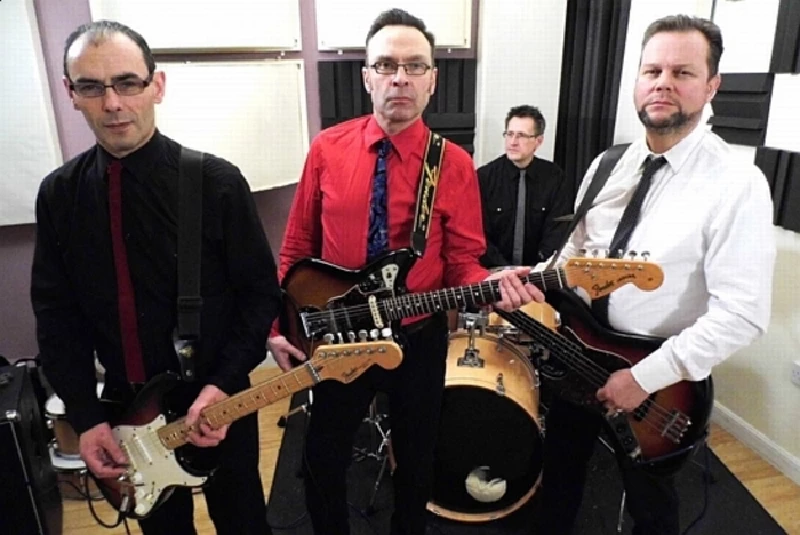
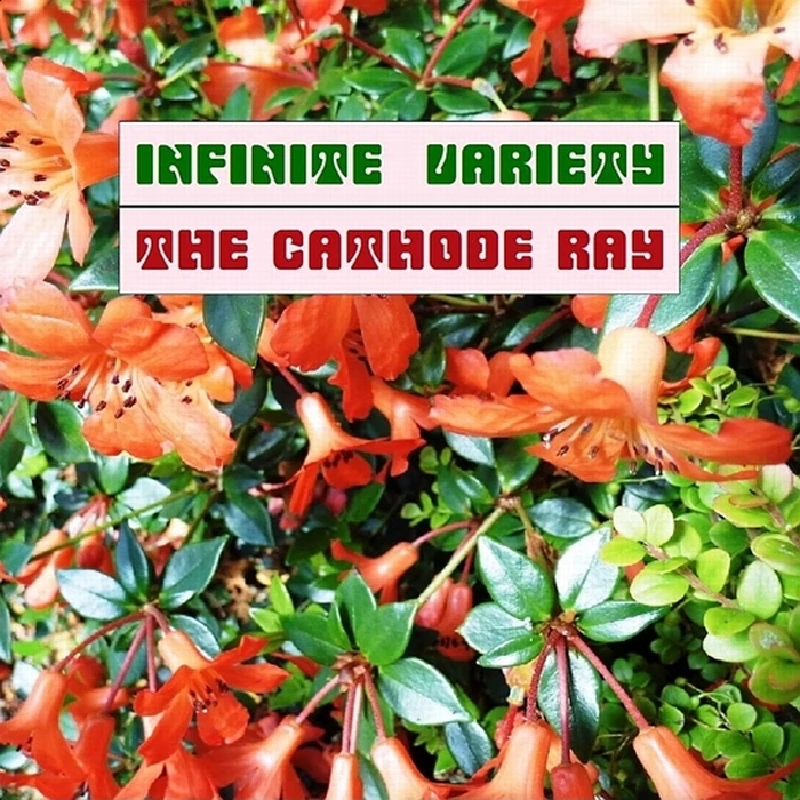
interviews |
|
Interview (2025) |
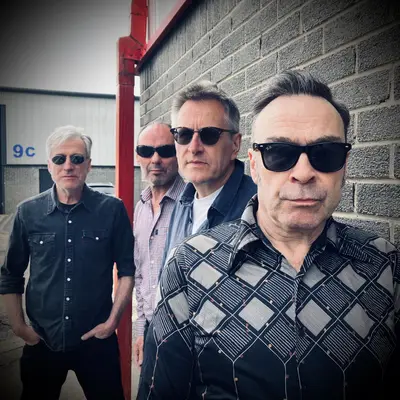
|
| Jeremy Thoms. the frontman in Edinburgh experimental outfit The Cathode Ray, speaks to John Clarkson about its fifth album, 'Advance Retreat'. |
| Interview (2020) |
| Interview (2011) |
live reviews |
|
Voodoo Rooms, Edinburgh, 13/11/2016 |
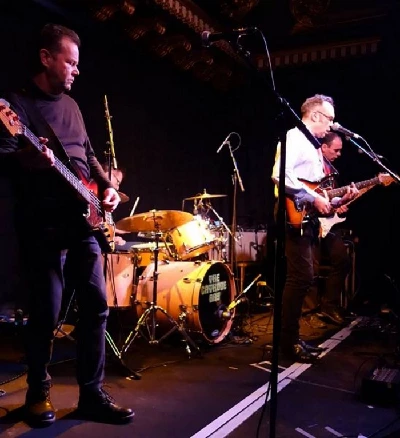
|
| John Clarkson at The Voodoo Rooms in Edinburgh watches alternative rock act the Cathode Ray play a forceful show in support of the Monochrome Set to finish the promotion of their second album 'Infinite Variety' |
| Basic Mountain, Edinburgh, 26/3/2016 |
| Wee Red Bar, Edinburgh, 7/9/2012 |
soundcloud
reviews |
|
Heightened Senses (2020) |
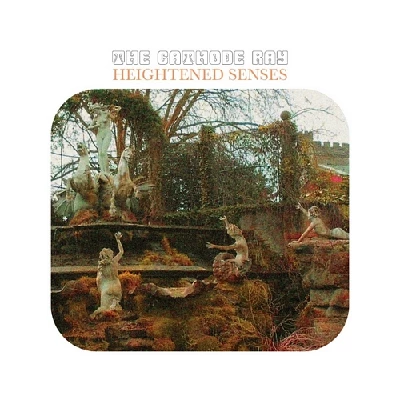
|
| Fabulous third album from Edinburgh-based alt. rock band the Cathode Ray which merges punk and post-punk with pop, psychedelia, glam rock, disco, folk and reggae |
| Another World (2018) |
| Infinite Variety (2015) |
| The Cathode Ray (2012) |
most viewed articles
current edition
Carl Ewens - David Bowie 1964 to 1982 On Track: Every Album, Every SongArmory Show - Interview with Richard Jobson
John McKay - Interview
Colin Blunstone - Thalia Hall, Chicago, 16/7/2025
Billie Eilish - O2 Arena, London, 10/7/2025
Bathers - Photoscapes 1
Visor Fest - Valencia, Spain, 26/9/2025...27/9/2025
Loft - Interview
Sir Tim Rice - Interview
Robert Forster - Interview
previous editions
Manic Street Preachers - (Gig of a Lifetime) Millennium Stadium, Cardiff, December 1999Heavenly - P.U.N.K. Girl EP
Beautiful South - Ten Songs That Made Me Love...
Oasis - Oasis, Earl's Court, London, 1995
Peter Perrett - In Dreams Begin Responsibilities Interview Part One
Prolapse - Interview
Coldplay - Wembley Arena. London, 16/8/2022
Boomtown Rats - Ten Songs That Made Me Love....
Trudie Myerscough-Harris - Interview
Pixies - Ten Songs That Made Me Love...
most viewed reviews
current edition
Davey Woodward - Mumbo in the JumboSick Man of Europe - The Sick Man of Europe
Lucy Spraggan - Other Sides of the Moon
Phew, Erika Kobayashi,, Dieter Moebius - Radium Girls
Amy Macdonald - Is This What You've Been Waiting For?
Bush - I Beat Loneliness
Suzanne Vega - Flying With Angels
Alice Cooper - The Revenge of Alice Cooper
Blueboy - 2
Cynthia Erivo - I Forgive You
related articles |
|
Band of Holy Joy/Cathode Ray: Feature (2016 |
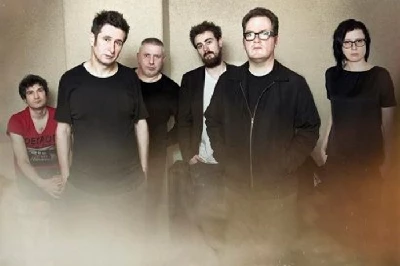
|
| Pennyblackmusic presents three acts from the Edinburgh-based label – The Band of Holy Joy, The Cathode Ray and Roy Moller – at the Sebright Arms on April 15th |
Pennyblackmusic Regular Contributors
Adrian Janes
Amanda J. Window
Andrew Twambley
Anthony Dhanendran
Benjamin Howarth
Cila Warncke
Daniel Cressey
Darren Aston
Dastardly
Dave Goodwin
Denzil Watson
Dominic B. Simpson
Eoghan Lyng
Fiona Hutchings
Harry Sherriff
Helen Tipping
Jamie Rowland
John Clarkson
Julie Cruickshank
Kimberly Bright
Lisa Torem
Maarten Schiethart